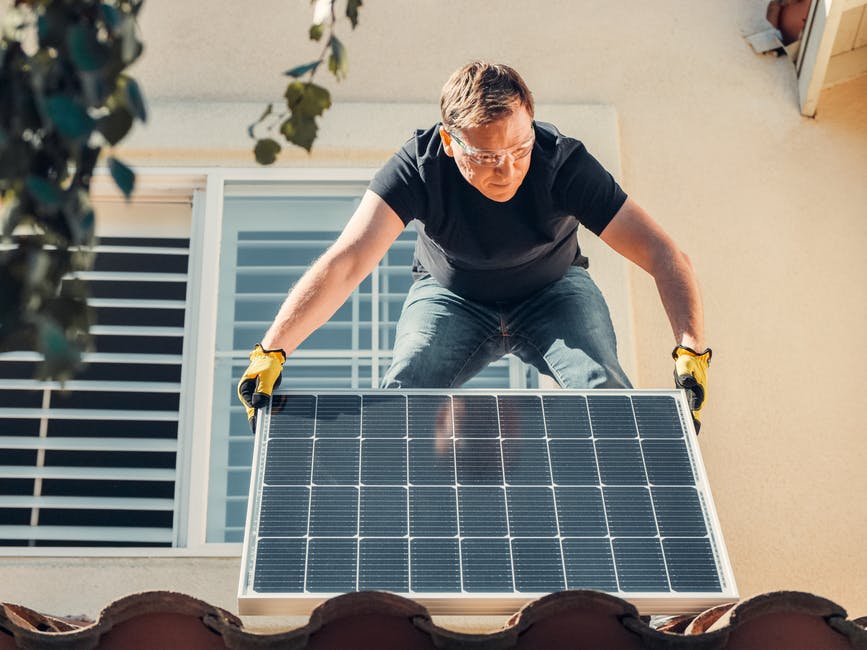It might surprise you to learn that solar panels reduce CO2 emissions more effectively than trees. This is one of the many reasons why solar energy is such an important part of the transition to a more sustainable planet. Not everybody understands the pros and cons of going solar around their home, however.
Let’s explore key information you need to know about solar panel installation.
How Solar Energy Works
When solar panels are installed in your home, they convert sunlight into electricity. The electricity is then sent to an inverter that changes the direct current (DC) output of the panel into alternating current (AC). This can then be used by household appliances and devices.
The Pros
There are numerous benefits you can enjoy by going solar. This will help you make the most of the solar panels you install.
Listed below are some of the most notable.
Reduces Electricity Costs
Installing solar panels can significantly reduce your electricity bill, as you will be able to generate your own power from the sun. In general, this will be more cost-effective than relying on traditional sources of electricity.
Those who live in areas with sunny climates, such as Texas or Arizona, can benefit even more.
Increases Home Value
Solar panels add great value to your property and can increase its resale value if you decide to sell it in the future. In fact, it may even influence potential buyers to make a purchase since they will get the benefit of reduced electricity costs.
Having solar panels also makes it easier to find a buyer when selling your home. To elaborate, buyers who are looking for an energy-efficient home will be attracted to a property with solar panels.
Qualify For Tax Credits
In many states, installing solar panels qualifies you for certain tax credits, helping you save even more on the cost of the system.
Depending on the project, you may receive a federal or state tax credit that helps reduce your overall costs. To explore your options, it’s best to consult a qualified tax professional.
Environmental Friendliness
This is perhaps the most important reason why people should go solar.
This type of green energy is a renewable resource that doesn’t produce air pollution or greenhouse gases, unlike conventional sources of electricity like coal-fired power plants. Installing solar panels helps reduce our reliance on fossil fuels and contributes to fighting climate change.
The Cons
Along with its many advantages, there are some drawbacks to consider before installing solar panels. They will affect everyone differently, depending on factors like location, climate, etc.
Consider these points when deciding if going solar is the right choice for you.
High Initial Cost
Investing in solar energy can be expensive, especially if you don’t have the resources to cover the full cost. Solar systems range in price depending on size, number of panels, etc.
In some cases, it may cost tens of thousands of dollars to install solar panels on your property. Many people aren’t able to afford this.
Efficiency Decline Over Time
Over time, solar panels slowly start to degrade, leading to an efficiency decline. This is normal since solar panels are exposed to the elements daily, meaning they will suffer from inevitable wear and tear.
However, it is something you should be aware of before deciding to install them.
Weather Dependence
Solar energy is a great alternative for those who live in sunny areas. In cloudier regions, solar panels won’t be as effective.
This means they may not generate enough electricity to power your home if there isn’t enough sunlight available. Be sure to consider this when making your decision.
Maintenance Is Required
Regular maintenance is required in order to ensure that your solar panel system stays efficient and functions correctly over time. This includes cleaning the panels, checking connections and cables, and replacing any parts that may be damaged.
It’s also important to keep an eye on weather forecasts. Extreme temperatures or heavy precipitation can negatively impact your system’s performance.
Getting Started
In order to take advantage of the benefits associated with solar energy, you need to have a comprehensive plan in place. This includes researching your options and choosing the type of system that best suits your needs.
It’s also important to consider installation fees, potential tax credits, and other factors that can help reduce costs. Make sure to consult with a professional to ensure that you’re making the right decision.
When searching for a professional installer, read customer reviews and do your due diligence. This will help you get the best possible system for your needs.
Reach out to them to discuss any solar-specific incentives that may be available. Incentives can help offset the cost of installation, making it much more affordable. You could even save thousands of dollars in some cases.
If you don’t feel comfortable when communicating with them, don’t be afraid to look elsewhere. It’s always in your best interest to find someone who is willing to help you meet your goals. You can read the page here to learn more.
Don’t Neglect Going Solar
Although there are certain drawbacks to going solar, the benefits strongly outweigh the negatives. Be sure that you keep the above guidelines in mind. This will help you make the decision that is best for you.
Looking for other useful information like this? Feel free to check out the rest of our blog.


